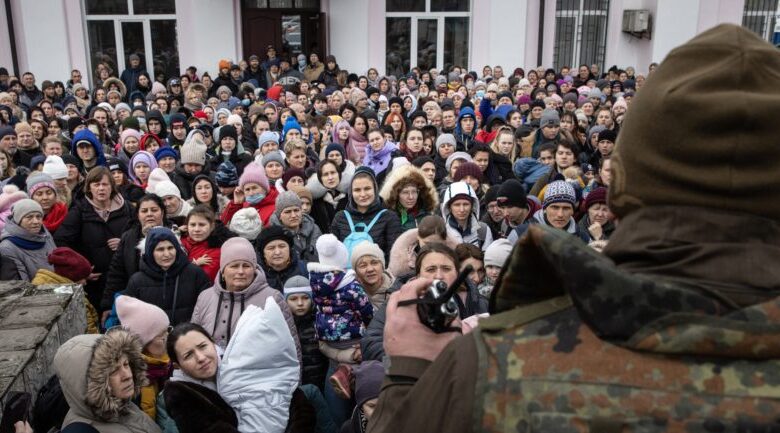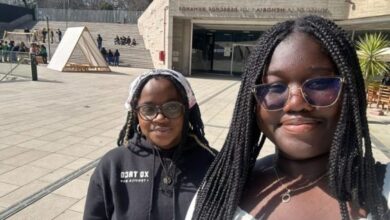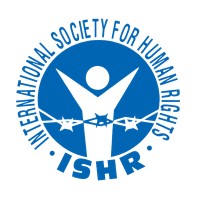International systems unfit to deal with global crises

Shameless failure of leadership paves way for further abuses
Russia’s full-scale invasion of Ukraine triggered one of Europe’s worst humanitarian and human rights emergencies in recent history, exposing what has been a reality for many in the Democratic Republic of Congo, Central African Republic, South Sudan, Mozambique, and the Sahel, and the terrible failure of leadership to resolve these conflicts.
Despite widespread conflict across West, Central, East and Southern Africa, limited progress was made towards ensuring victims’ rights to truth, justice, reparation and accountability for grave violations and abuses of human rights that may amount to crimes under international law.
In 2022, the African Union celebrated the 20th anniversary of its founding and establishment. It was a year in which the continental body was expected to double down on its responses to crises and the fight against impunity; to rededicate itself to its ambitious goal of ‘silencing the guns’ and ridding the continent of the scourge of conflict by 2030. Instead, the African Union’s response to grave violations and abuses of human rights committed in conflicts across the region was either absent or timid at best.
In South Sudan, victims of crimes under international law continued to wait, for the seventh year in a row, for the African Union to decisively act and establish the Hybrid Court for South Sudan. 2022 marked seven years since a peace agreement mandated the African Union to establish the Hybrid Court for South Sudan and nine years since the country descended into conflict.
In Ethiopia, the African Union successfully mediated the signing of a peace agreement in response to the two-year brutal conflict in the northern region. However, it remained eerily silent as the Ethiopian government continued to discredit and deny access to the African Commission on Human and Peoples’ Rights Commission of Inquiry on the Situation in the Tigray Region. At the same time, the peace agreement mediated by the African Union overlooked rampant impunity in the country and failed to offer a clear roadmap on how to ensure accountability for war crimes and crimes against humanity.
While the African Union mediation efforts resulted in cessation of hostilities agreements in countries such as Ethiopia, many other conflicts continued largely unabated. Emboldened by a lack of attention or decisive action from the African Union and the United Nations, armed groups and government forces alike continued to target civilians in conflicts around the continent, leaving a trail of death and destruction.
In Burkina Faso, armed groups, the Islamic State in the Sahel (ISS) and the Group for the Support of Islam and Muslims (GSIM), targeted towns and cities, killing people in attacks and violating humanitarian law. In Djibo town, more than 300,000 residents were affected when GSIM destroyed water infrastructure. At least 80 people, mostly civilians, were killed when ISS fighters attacked Seytenga town in June 2022, reportedly going from house to house killing men.
In Mali, members of the GSIM attacked three villages in Bankass Cercle, killing at least 130 people in May 2022. In Moura town, several dozen people were summarily executed by Malian soldiers and their allies in March. The same forces killed 50 civilians in Hombori in April 2022.
In Cameroon, armed separatist groups in the North-west and South-west regions targeted people, healthcare facilities and schools. Armed groups in the Far North region similarly raided villages, killing and abducting dozens of civilians. In the Central African Republic, at least 100 civilians were killed by armed groups and government forces between February and March 2022.
Attacks on civilians also intensified in eastern parts of the Democratic Republic of the Congo (DRC) where armed groups killed more than 1,800 civilians. In Nord-Kivu, fighting between the Congolese army and M23 rebels forced more than 200,000 people to flee their homes. Data collected by the UN showed that at least 250 internally displaced people were killed during the year as a result of deliberate attacks against their camps in the east, with 180 killed in Ituri alone.
Both state and non-state actors cannot continue to violate human rights and international humanitarian law with impunity.
Tigere Chagutah, Director for East and Southern Africa, Amnesty International
In Mozambique, an armed group calling itself Al-Shabaab committed war crimes by beheading civilians, abducting women and girls, and looting and burning villages in the north of the country. On 21 May 2022, they attacked Chicomo, Nguida and Nova Zambezia villages in Macomia district and burned houses, ransacked crops, beheaded 10 people and abducted women and girls.
“Longstanding impunity for human rights violations from Burkina Faso to Central African Republic, Ethiopia to Sudan and Mozambique to Cameroon has added fuel to the fire of conflicts and human rights violations in Africa. Both state and non-state actors cannot continue to violate human rights and international humanitarian law with impunity. There must be consequences for human rights violations,” said Tigere Chagutah, Amnesty International’s Director for East and Southern Africa.
“Parties to armed conflicts must protect civilians by ending deliberate attacks on civilians and civilian infrastructure, and indiscriminate attacks. They must also facilitate the safe and unhindered access to humanitarian assistance for populations at risk.”
Source link




